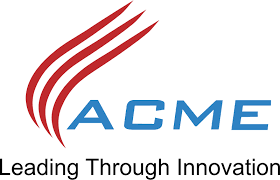
₹ 14739
₹275- ₹289
51
₹251
-13

8 Nov 2024
12 Nov 2024
13 Nov 2024
Application Details
The ACME Solar Holdings IPO will be open for subscription from November 6 to November 8, 2024, with a listing date set for November 13, 2024. Each share has a face value of ₹2, and the price band is between ₹275 and ₹289 per share. Investors can apply in lots of 51 shares, with a minimum application amount of ₹14,739 and a maximum of ₹1,91,607 for retail investors. The IPO comprises a total issue size of 100,346,022 shares, aggregating to ₹2,900 crore. This includes a fresh issue of 82,871,973 shares (₹2,395 crore) and an offer for sale of 17,474,049 shares (₹505 crore). An employee discount of ₹27 per share is available for eligible participants.
Key dates for the IPO include the basis of allotment on November 11, 2024, the initiation of refunds and credit of shares to Demat accounts on November 12, 2024, and the scheduled listing on November 13, 2024.
About ACME Solar Holdings Limited
Company Overview
Incorporated in June 2015, ACME Solar Holdings Limited is an Indian renewable energy company specializing in producing electricity from wind and solar sources. The company stands as one of the largest independent power producers (IPPs) in India’s renewable sector, with a prominent presence in solar, wind, hybrid, and firm and dispatchable renewable energy (FDRE) projects.
Business Operations
ACME Solar Holdings focuses on the development, construction, ownership, operation, and maintenance of large-scale renewable energy projects. The company operates through its in-house engineering, procurement, and construction (EPC) division and an operations and maintenance (O&M) team. Revenue is primarily generated through long-term power purchase agreements (PPAs) with central and state government-backed entities.
Geographical Presence
ACME Solar Holdings’ projects are spread across 10 states in India, including Rajasthan, Gujarat, Punjab, Madhya Pradesh, Uttar Pradesh, Bihar, Chhattisgarh, Andhra Pradesh, Odisha, and Telangana.
FAQ
IPO stands for "Initial Public Offering." It's the process through which a privately-held company becomes publicly traded by offering its shares to the general public and listing them on a stock exchange for trading. This allows the company to raise capital from investors and grants individuals and institutions the opportunity to invest in and own a portion of the company.
The life cycle of an IPO, or Initial Public Offering, begins with a company's decision to go public. It involves hiring underwriters, registering with regulatory authorities, determining the IPO price, marketing to investors, and the subscription period where investors place orders for shares. After allocation and listing, shares become publicly tradable, and the company enters the secondary market. Ongoing reporting and corporate governance are crucial as the company continues to operate as a publicly-traded entity. The IPO aims to raise capital for growth and provides investors with opportunities to trade shares in the company.
An IPO (Initial Public Offering) is when a private company goes public by selling shares to the public. Investors buy these shares, giving them ownership in the company. It's a way for companies to raise capital and expand. The process involves underwriters, regulatory filings, setting the IPO price, and marketing to investors. After the IPO, shares can be traded on a stock exchange. IPOs offer opportunities and risks, so investors should research and consider carefully.
"Upcoming IPOs" refers to initial public offerings that have been announced by private companies but have not yet occurred. These are companies that plan to go public in the near future by issuing shares to the public and listing them on a stock exchange. Investors often keep an eye on upcoming IPOs as they represent opportunities to invest in companies at their early stages of public trading, potentially capturing growth potential. These offerings are typically accompanied by significant media and investor attention as they approach their launch dates.
 Download
Download